Defense Slams Michael Cohen as ‘Greatest Liar of All Time’ as Trump’s Trial Ends: Trump Denounces Proceedings as ‘a Dark Day’
The jury is expected to begin deliberations on Wednesday.

After an unusually long court day on Tuesday, spanning ten-and-a-half hours, during which both sides presented their closing arguments, the jury on Wednesday will begin deliberating over whether President Trump is guilty or not in his New York hush-money trial.
“You cannot send someone to prison based on the words of Michael Cohen,” one of Mr. Trump’s defense attorneys, Todd Blanche, told the jury on Tuesday as he ended his closing statement, sparking a fierce objection from the prosecution and an even sharper rebuke from the presiding judge.
“I think that saying that was outrageous, Mr. Blanche,” the New York Supreme Court justice, Juan Merchan, snapped. Attorneys are not permitted to address sentencing with the jury, because in New York, the jury is not involved in deciding a defendant’s punishment in criminal cases and should not consider the sentence when deliberating the verdict.
“It is simply not allowed, period.” the judge added. He reminded Mr. Blanche that the defense attorney had once been a federal prosecutor for the prestigious Southern District of New York. “It’s hard for me to imagine how that was accidental in any way,” Judge Merchan said, further adding that “a prison sentence is not required for the charges.”
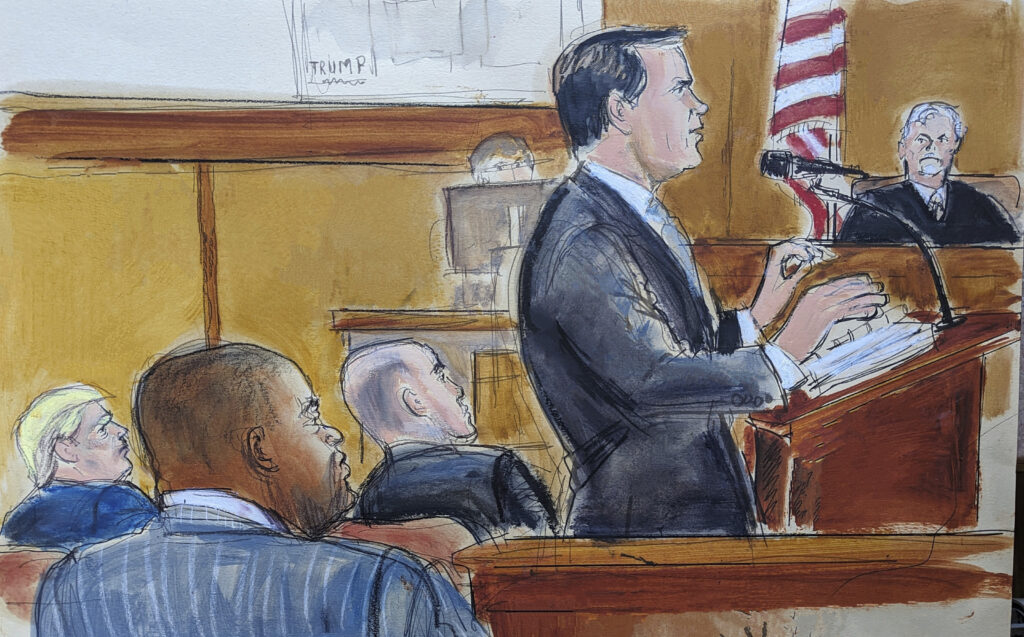
Before Mr. Blanche made this provocative statement, he had asked the jurors if they had heard the contemporary phrase “GOAT,” meaning the Greatest Of All Time. He went on to say that Michael Cohen, Mr. Trump’s former personal lawyer and current nemesis, qualified to be not a GOAT, but a GLOAT, “the greatest liar of all time.” Mr. Blanche doubled down, “literally like an MVP of liars.”
Cohen plays a central role in the hush-money case, which was brought against Mr. Trump by the Manhattan district attorney, Alvin Bragg, who was sitting in the second row, watching the historic case, the first against a former president of the United States. Mr. Bragg’s case came to a close after 22 witnesses testified in the course of six weeks and more than 200 documents of evidence were shown to the jury.
On the other side of the room, at the defense table, sat Mr. Trump, wearing his signature red tie. Three of his five children were seated in the pews behind him: his two elder sons, Don Jr. and Eric, 46, and 40, and a surprise guest, his younger daughter Tiffany, 30, who had come to support her father with her husband Michael Boulus, 26, the scion of a wealthy Lebanese family with major business interests in Nigeria.
The appearance by Ms. Trump, who usually avoids the spotlight, was notable because last week, Mr. Trump’s attorneys questioned Cohen about how he’d managed an “extortion” attempt against Ms. Trump, involving a photo, while her father was president.
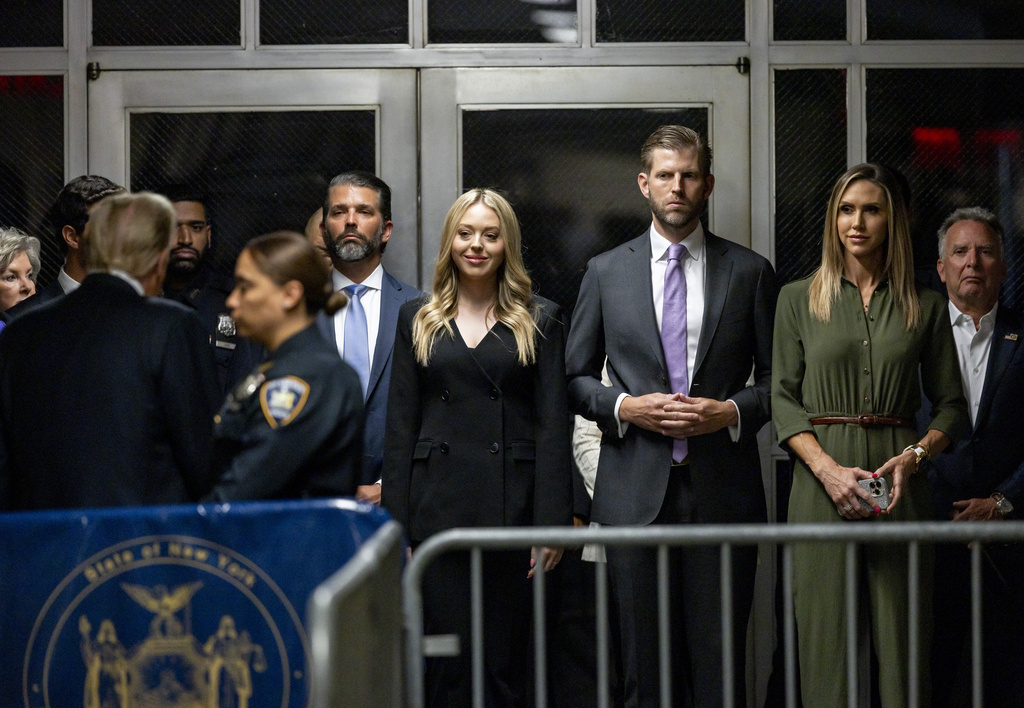
Tuesday was the first time that this many family members of Mr. Trump’s had appeared together at the Manhattan criminal court. In addition to Mr. Boulos, Lara Trump, 41, Eric’s spouse and the new co-chair of the Republican National Committee, was also present as an in-law. Mr. Trump bringing his family to court sent a different, more personal signal to the jury than the usual entourage of conservative politicians and celebrities, such as Joe Piscopo.
Mr. Bragg has charged Mr. Trump with 34 felony counts of falsifying business records in an attempt to influence the 2016 election. The prosecution alleges that Mr. Trump instructed Cohen to make a $130,000 hush-money payment to the adult film star Stormy Daniels, whose real name is Stephanie Clifford, two weeks before the 2016 presidential election. The payment was intended, the prosecution says, to keep Ms. Clifford from publicizing her story about a one-time sexual encounter she claims to have had with Mr. Trump at a celebrity golf tournament at Lake Tahoe in 2006. After Mr. Trump became president, the prosecution further alleges, he reimbursed Cohen but fraudulently disguised the payment as a legal expense.
Mr. Trump denies the charges and also denies ever having had sex with Ms. Clifford. In the morning, before entering the courtroom, he cited various articles from the Wall Street Journal and the New York Post to reporters, saying, “Everybody says this is crazy. This is not a trial that should happen. It’s a very sad day. This is a dark day in America.”
The defense had focused much of its case on torpedoing the credibility of Cohen, who made the hush-money payment to Ms. Clifford using his personal home equity line of credit, and who claimed Mr. Trump had directed him to do so to protect his image during the election. The “greatest liar of all time,” as Mr. Blanche had crowned him, had already lied to Congress, to the Senate, to judges, to his family, and even in this criminal courtroom, when he told the jury he spent hours relaying his story to Mr. Bragg. Under cross-examination, Cohen admitted he had never actually met the district attorney in person.
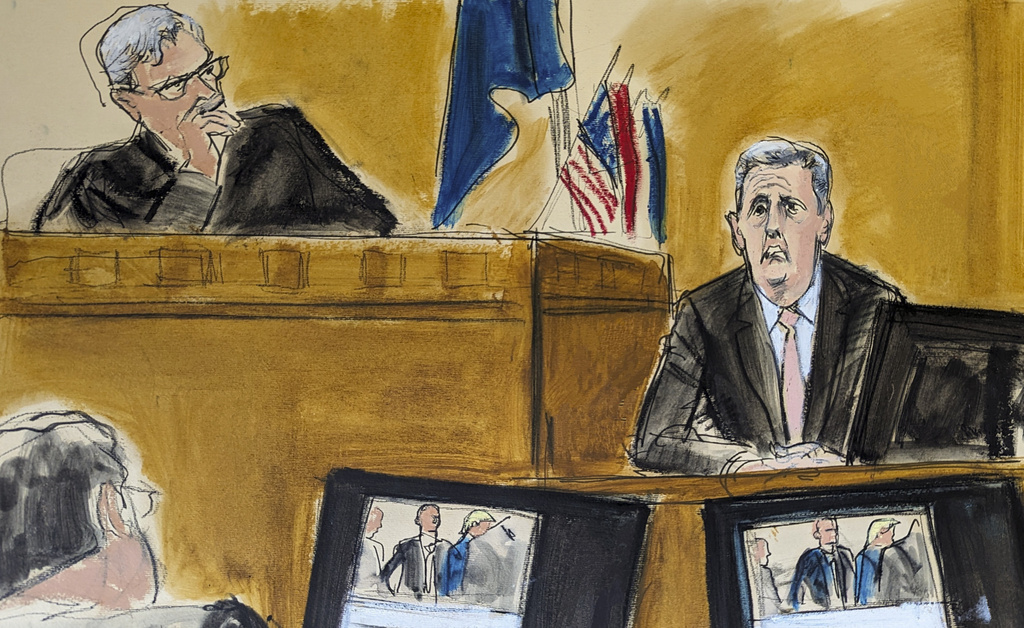
Mr. Blanche also questioned the phone conversations Cohen secretly recorded, which the prosecution had submitted as evidence, suggesting that Cohen’s phones may have been tampered with, having undergone a factory reset in October 2016, a sync with an uncollected laptop in January 2017, and another sync with an unspecified device in October 2020.
“How can you trust that the September 6 recording is actually reliable? The answer is, you can’t,” Mr. Blanche said, referring to a phone conversation during which Mr. Trump can be heard discussing a payment with Cohen, which the then-publisher of the National Enquirer, David Pecker, made to Karen McDougal, Playboy’s Playmate of the Month for December 1997 and Playmate of the Year for 1998. Like Cohen’s payment to Ms. Clifford, the $150,000 payment to Ms. McDougal was to “catch and kill” her story about an alleged romance with Mr. Trump, in a further effort, the prosecution claims, to protect Mr. Trump’s image during the election.
“This case, at its core, is about a conspiracy and a coverup, a conspiracy to corrupt the 2016 election and a coverup to hide that conspiracy,” the prosecutor who closed the case for the Manhattan district attorney, Joshua Steinglass, told the jury on Tuesday afternoon.
According to the prosecution, Mr. Trump, Mr. Pecker and Cohen met at Trump Tower in August 2015 and conspired to use theEnquirer to help Mr. Trump win the election by publishing favorable stories about Mr. Trump and negative stories about his opponents, and by applying the so called catch-and-kill scheme to buy and suppress stories from women about Mr. Trump’s bedroom activities.
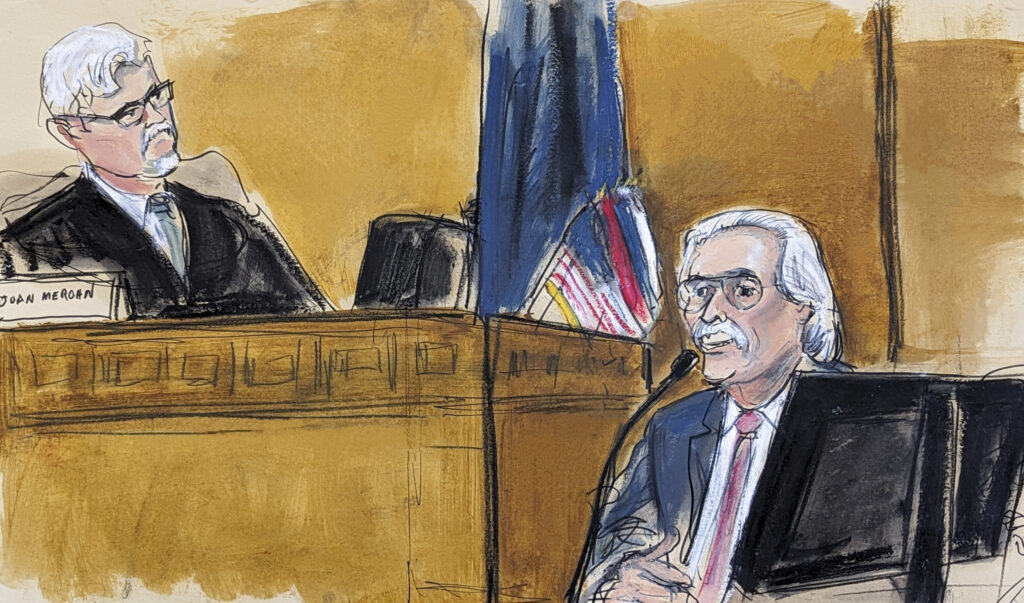
But Mr. Blanche argued there were no stories to catch and kill. Ms. McDougal had gladly sold her story to the Enquirer, Mr. Blanche said. “McDougal did not want her story published,” Blanche said. “That’s not catch and kill.”
Another story, which Mr. Pecker bought from a doorman who used to work at Trump Tower, falsely claimed that Mr. Trump had fathered an illegitimate child. But the Enquirer, Mr. Blanche said, would have run that story, if it had been true.
“AMI would have run Mr. Sajudin’s story no matter what,” Mr. Blanche said. “That’s not catch and kill.”
And finally, he argued, the story about Ms. Clifford, the porn star, was also not a catch-and-kill, because it was “already public.” Indeed, Ms. Clifford had given a paid interview in 2011 to InTouch magazine in which she claimed of Mr. Trump that, “I can describe his junk perfectly.”
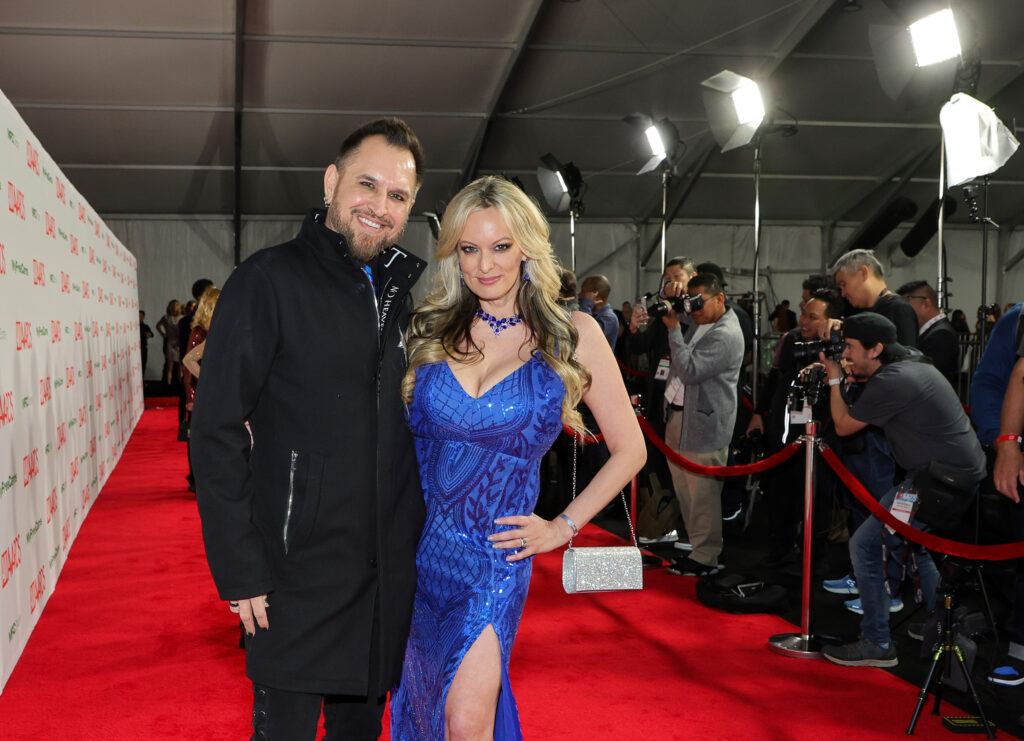
But Mr. Blanche, at times, confused the jury. Unlike the prosecution, which told a linear story, Mr. Blanche fired various arguments at the same allegation. In the case of Ms. Clifford, Mr. Blanche for one said her story, which InTouch briefly published in 2011, but then took down, was not a catch-and-kill because it was already known. But he also said that it was Cohen’s idea to silence the adult star.
The prosecution alleges that the release of the “Access Hollywood” tape, in early October 2016, caused a panic in the Trump campaign which led to Mr. Trump ordering Cohen to make the hush-money payment to Ms. Clifford, in an effort to stop any additional bad publicity from surfacing.
In the leaked conversation between Mr. Trump and television host Billy Bush heard on the now notorious “Access Hollywood” tape, Mr. Trump said that women flock to famous men, and allow them to do anything. “And when you’re a star, they let you do it. You can do anything. … Grab ’em by the p… You can do anything,” Mr. Trump bragged to Mr. Bush.
But the defense attorney said this was not a “doomsday event,” and Mr. Trump “never thought it was going to cause him to lose the campaign, and indeed it didn’t.” Mr Trump would later dismiss the conversation as “locker-room talk” during his debate with Secretary Clinton.
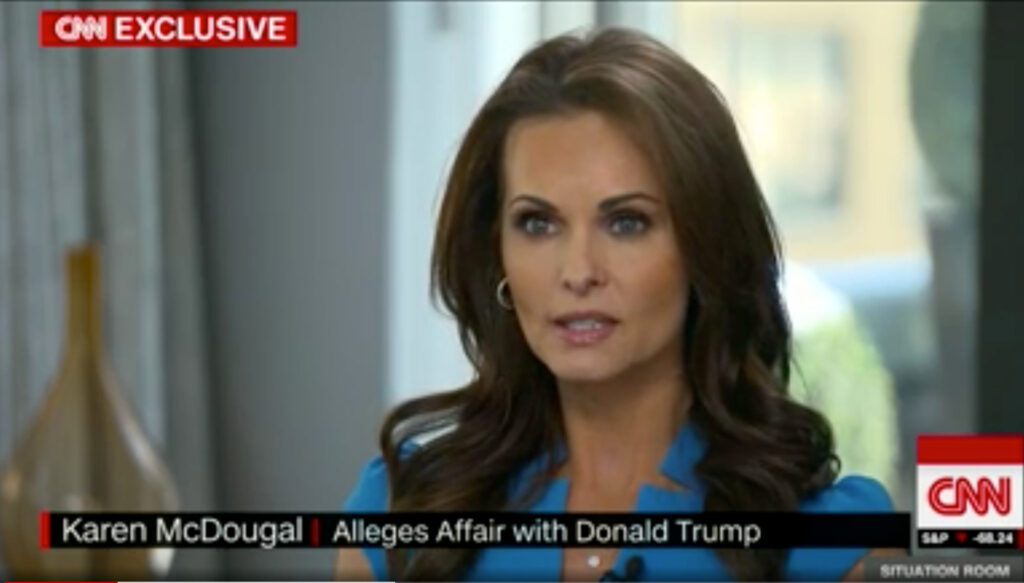
In reality, Mr. Blanche told the jury, it had been Cohen, who overreacted to the “Access Hollywood” tape, and it was Cohen acting on his own who took the initiative to buy the silence of Ms. Clifford, because she and her agent, in turn, wanted to make money.
“Ms. Daniels and Ms. Rodriguez seized an opportunity,” Mr. Blanche said, referring to Ms. Clifford and her manager, a former porn star named Gina Rodriguez.
Mr. Trump, the defense argued, had fallen victim to extortion.
The burden of proof lies on the prosecution, not on the defense, and while Mr. Blanche took approximately two and half hours to argue his case, Mr. Steinglass took five, beginning at roughly 2:15 pm after the lunch break and ending at 8 pm.
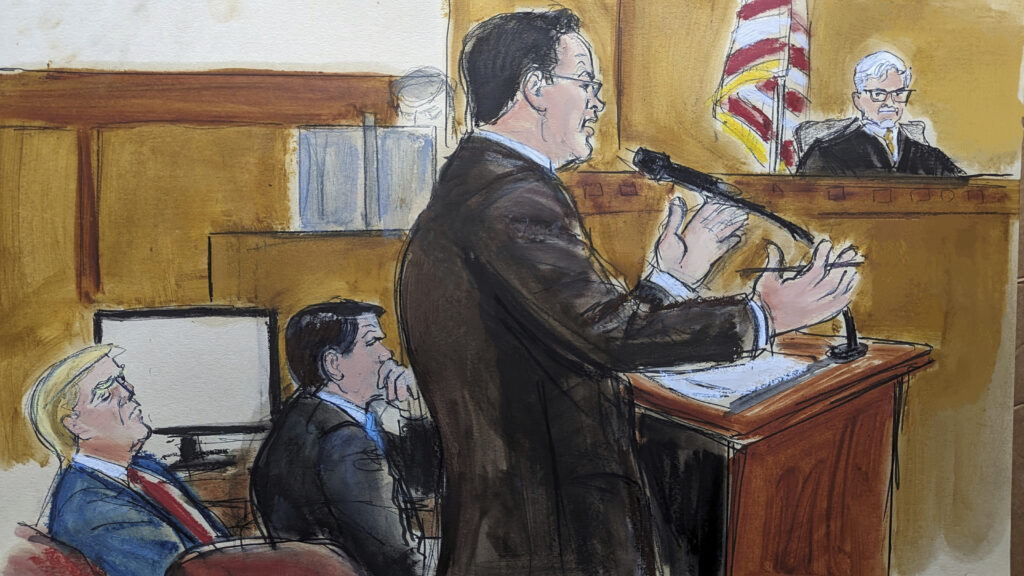
It is uncommon that a judge would keep a jury inside a courtroom this late, but Judge Merchan had previously asked the jurors if they would agree to stay late, and they did. When Mr. Steinglass thanked the jurors for their engagement, he mentioned that he had never participated in a trial for which the jury members arrived on time every single day. It’s a sign, perhaps, of respect for the former president and a highly unusual case.
As Mr. Steinglass addressed the jury, Mr. Trump did not look at the prosecutor. Not once. His gaze remained turned to the front of the room. Sometimes he shook his head in disgust.
The prosecution explained that Cohen had lied to cover for Mr. Trump.
“The defense goes on and on about Michael Cohen is immoral or a liar or a thief,” Mr. Steinglass said. “We didn’t choose Michael Cohen to be a witness. We didn’t pick him up at the witness store. The defendant chose him as a fixer because he was willing to lie and cheat.”
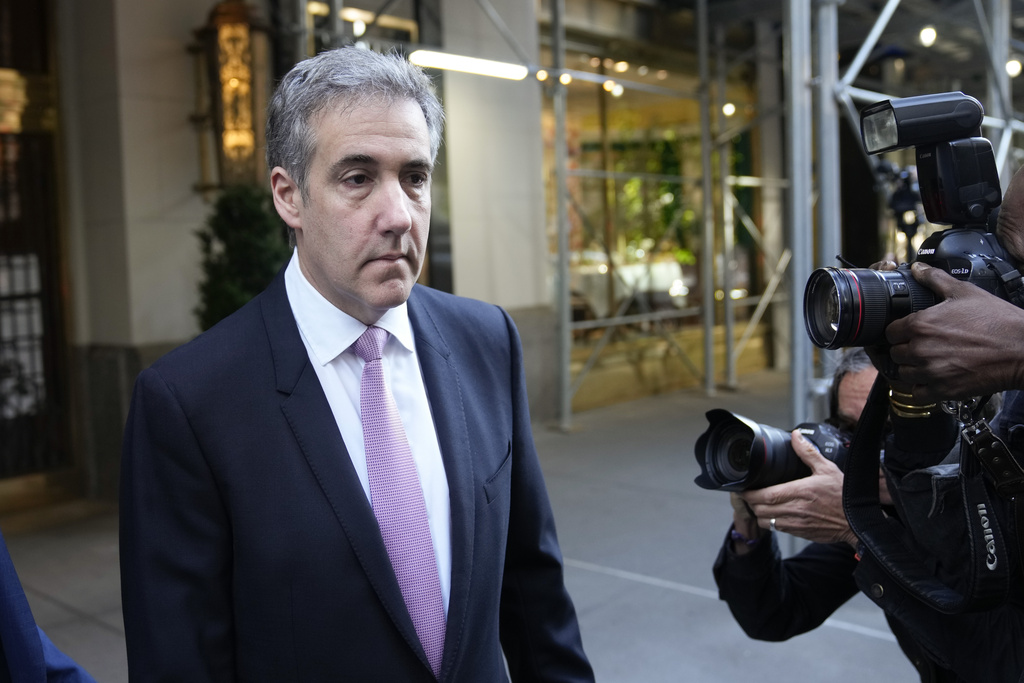
“The question is not whether you like Cohen or whether you want to go into business with Cohen. It’s whether he has useful, reliable information,” Steinglass added. “He was in the best position to know.”
Over the next hours, Mr. Steinglass shifted his focus away from Cohen and began to unfold his version of the case, a case “about Donald Trump and whether he should be held accountable for making false entries in his own business records, whether he and his staff did that to cover up for his own election violations.”
A payment like the one Mr. Pecker made to Ms. McDougal, during an election season, equalled an unlawful campaign contribution, Mr. Steinglass argued.
“This transaction amounted to an unlawful corporation campaign contribution by AMI to the Trump campaign,” he said of the Enquirer’s parent company.
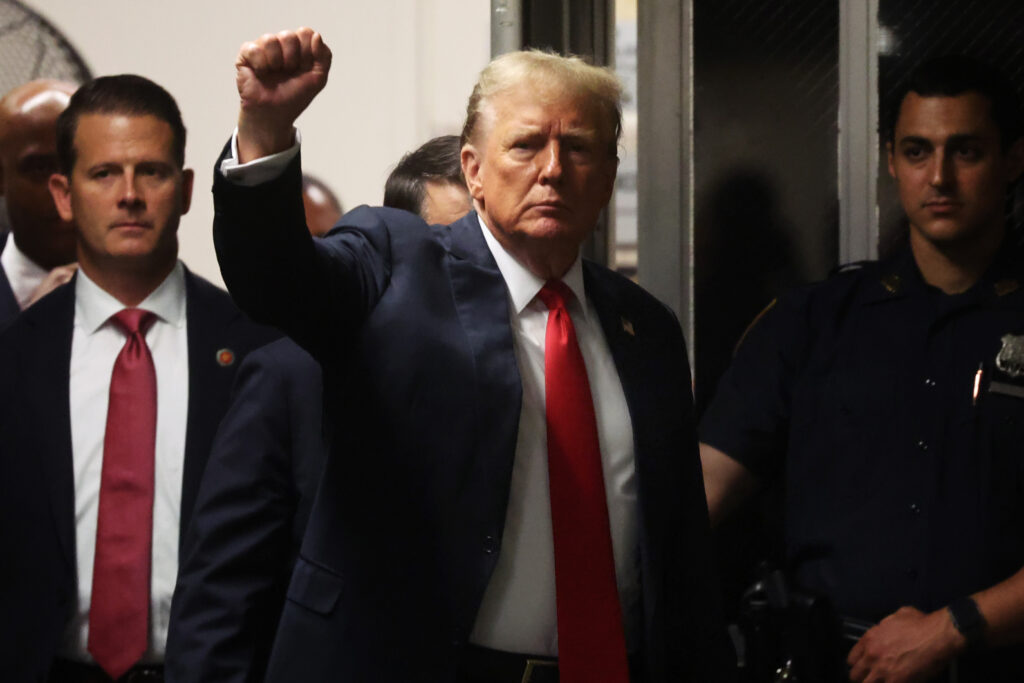
For this reason, the September 6 phone call, during which Mr. Trump can be heard speaking about this payment with Cohen, was especially important.
“With all of the evidence and documents in this case, it’s easy to lose sight of the significance of this phone call,” Mr. Steinglass argued. “Trump is deputizing Cohen right in front of Pecker.”
And since Mr. Pecker had testified during the trial, and admitted to making the payment, it corroborated what Cohen had said, and made his testimony seem believable, and less essential.
On Wednesday morning, the judge will instruct the jury on the charges. Jurors will then begin deliberations.
As Mr. Trump left the courtroom, he pulled on the lapels of his blazer, in a loud gesture. He did not speak to reporters as he had an engagement at 8:30 pm. He will return to court tomorrow.

